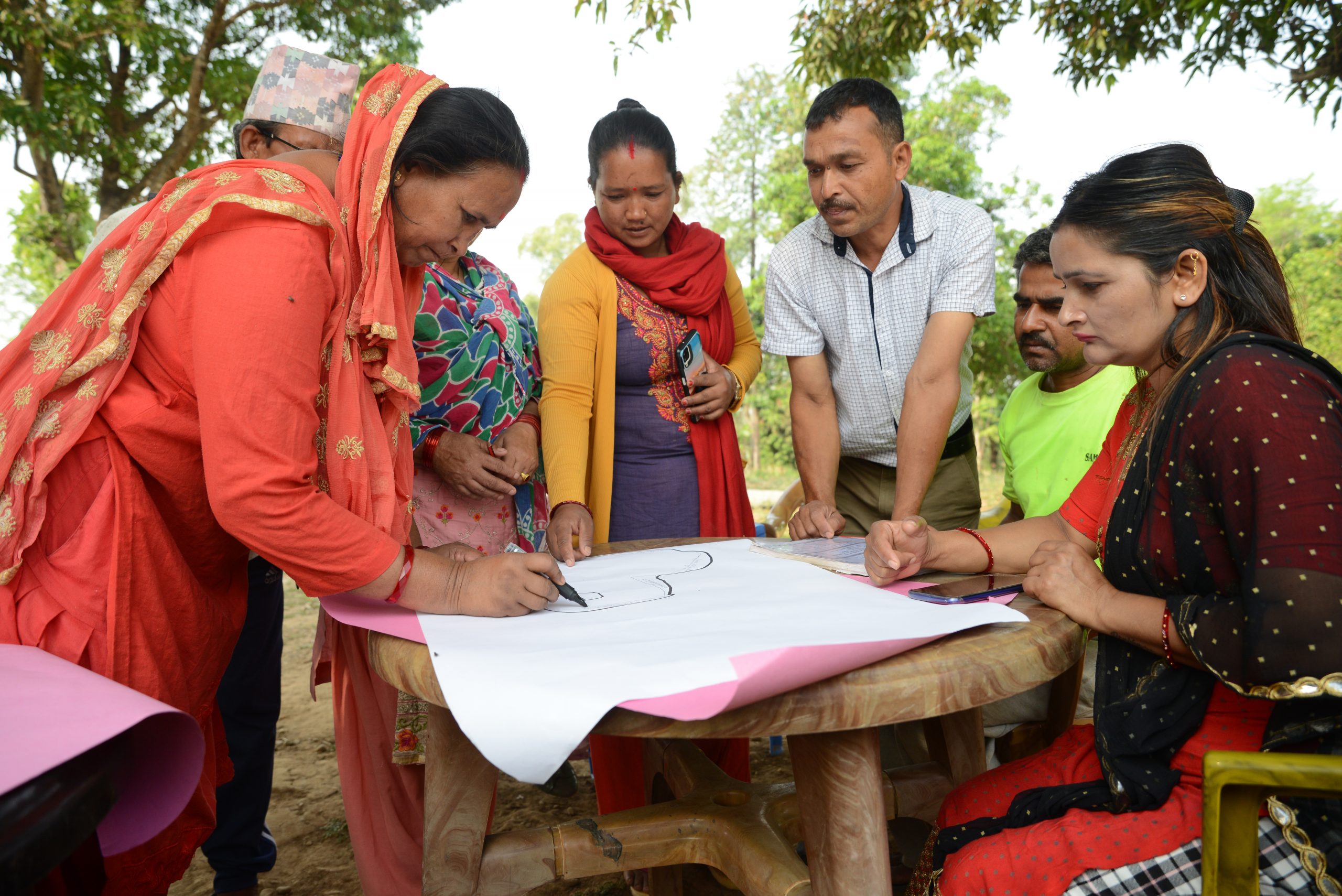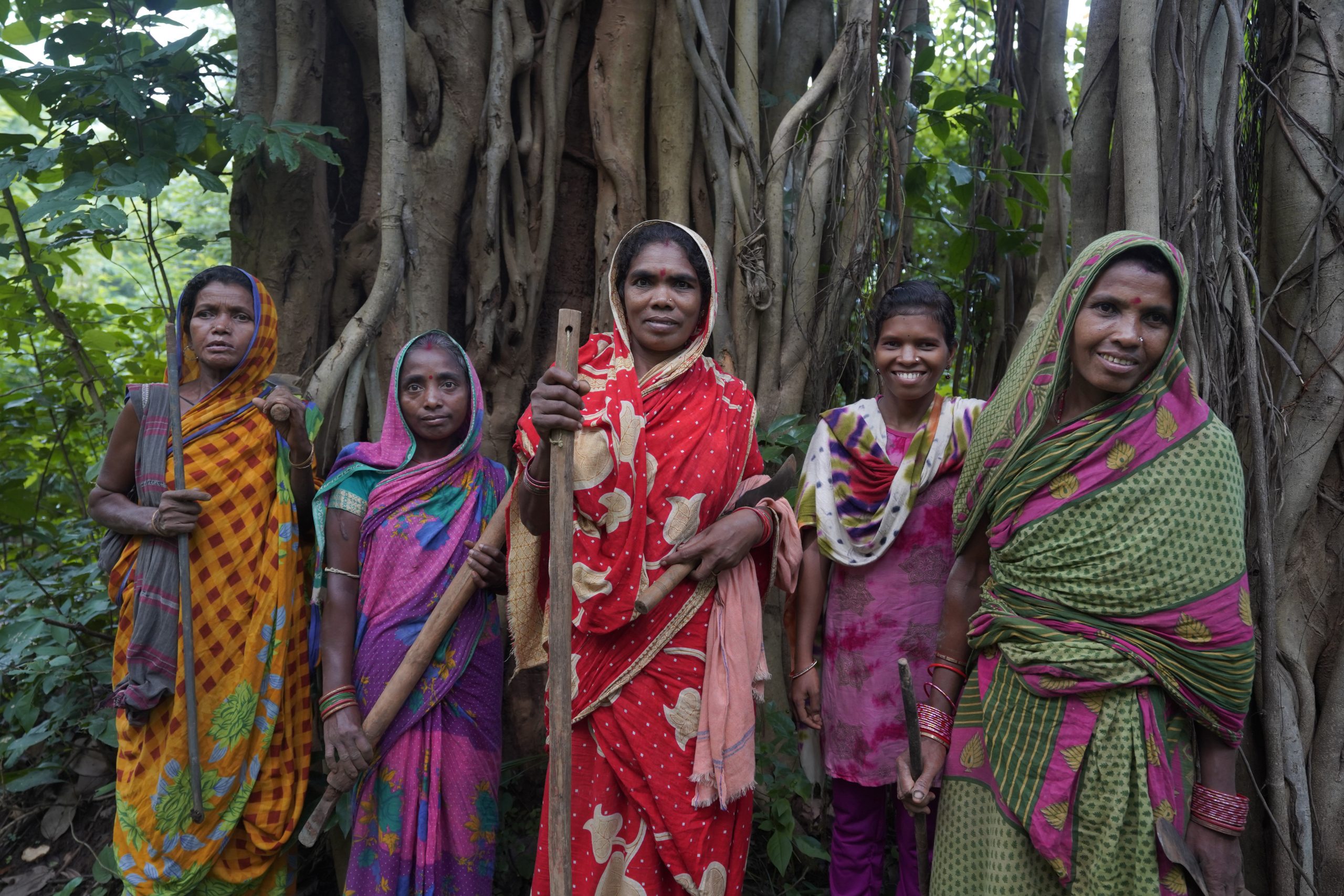2023-04-04
By Jeremy Gaunt
Who owns your data is an issue that concerns huge swathes of the world’s population, touching on privacy and government surveillance. But when the data concerned is the key to land rights and security of your home, it takes on added consequence.
That is the case with Indigenous Peoples, whose mapping and other data-gathering can decide what is and what isn’t their land, and hence their ability to protect their environment and traditions.
For Indigenous women, access to and ownership of data is even more crucial, resonating as an issue of gender inclusion and equality, as well as bringing different cultural and social elements into play. Yet, they are often excluded.
“It’s very difficult for (Indigenous) women to have higher roles or access to certain things. We are not free to represent other people or other women in public spaces,” said Betty Rubio, a Kichwa leader from Peru and the first woman president of her region’s Indigenous federation.
Rubio was speaking at the March 30 Land Dialogues webinar “Taking Data Back: Women’s Sovereignty Over Land Data”, an event hosted by Tenure Facility, Land Portal, Ford Foundation and Thomson Reuters Foundation.
The webinar investigated both data sovereignty – the rights of Indigenous Peoples to control data from and about their communities – and data feminism, which looks at how current data science can reinforce gender inequalities around the world.

Sometimes exclusion comes from governments dealing with (mainly male) Indigenous elders. Sometimes women are excluded from data collection because they are too busy dealing with children, providing food, and taking on other traditional roles. An emphasis on hard data can also exclude social and cultural data, which are often the purview of women.
It became clear from the outset that while some progress is being made, Indigenous women have been cut out of the data sovereignty stream the farther collection of the data moves from the ground.
Denik Puriati, a community organiser with the Wisnu Foundation in Bali, said the problem for women on the Indonesian island lies in the role of government.
“The majority of data-collection work is still being done by the government,” she said. “So, most land data, what’s being collected, (is) stored by the government. What women have access to … is very much contingent on the law.”
A similar disconnect between the owners of data and the powers-that-be was noted by Rudo Kemper, chief programme officer of Cadasta, a land technology and services platform that seeks to empower vulnerable communities to document, map, and secure inclusive land and resource rights.
Data is generally collected then sent somewhere away from the source to be processed, he said. At that point, Indigenous Peoples can begin to lose control over it. But for women, there can be additional barriers.
“In terms of Indigenous women, their level of access to that data gets to be diminished (even more) as more dominant interests within the community might be the only parties that are receiving that data once it has been processed or collected,” Kemper said.
"It's really important to recognise that in different cultures, and I think of my own, the type of knowledge and data that women are experts in might be different than the men’s,"
Culture Clash
A case was also made that while crucial in securing land rights, some data collection is too geospatial, ignoring other elements that are key to the nature of Indigenous Peoples.
“We tend to think through this very colonial lens of these binary numbers that are collected,” said Dr. Lydia Jennings, a Native American soil microbiologist who has conducted research on soil health, environmental remediation, indigenous science, and environmental data ownership by tribal nations.
Data should reflect languages, locations, sacred ecosystems, and the relationships between humans and flora and fauna, she said.
“It’s really important to recognise that in different cultures, and I think of my own, the type of knowledge and data that women are experts in might be different than the men’s,” Jennings said.
“It not because of gender disparities. It’s because we recognise that we each have different roles as knowledge keepers and knowledge experts.”

Wisnu’s Puriati echoed the notion with regard to Bali, where she said traditional peoples had a belief that they share the same nature as the Earth. They used to manage their lands with this as a core value. But then, after independence, the government of Indonesia began acting on behalf of economic growth and development.
“When investment starts to take precedence, the cultural value starts to diminish, and it creates chaos,” she said.
All is not bleak, however. Webinar participants also reported on efforts to bring women more into the data fold through community organisations, technology, and women’s participatory groups.
The core issue, though, is that excluding women from data collection and ownership – and hence land rights — can be damaging to the future of Indigenous Peoples.
“Women are on the top of everything that is happening in the community and what we’re leaving behind for our future generations,” Rubio said.
Articles